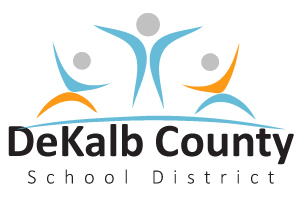
Georgia Dual Enrollment
Overview
Georgia’s Dual Enrollment Program provides funding for students who are dually enrolled at a participating eligible public or private high school, or home study program in Georgia, and a participating eligible postsecondary institution in Georgia. These students take postsecondary coursework for credit towards both high school graduation or home study completion and postsecondary degree, diploma, or certificate requirements.
The program is offered during all terms of the school year: fall, spring and summer semester or fall, winter, spring and summer quarter.
GaFutures.org
Enrollment Process
AP/IB vs Dual Enrollment Courses – Pros & Cons
| AP/IB Pros | Dual Enrollment Pros |
|---|---|
| Most colleges around the US will give credit for strong test scores on either AP or IB exams, with limitations set by each college. | The availability of dual enrollment options is very widespread, and this is especially important for students who attend a high school with no AP/IB courses. In addition, the wide range of courses offered for dual enrollment students at each college is great. |
| AP and IB coursework is consistent worldwide, so the student, the school and the college all know what is expected. Yes, there are variations based on schools and teachers, but the curriculum is standardized. | If you pass a DE course, most public colleges (and some private ones) will award you credit for the courses. |
| AP and IB students can get an idea of the level of work needed for a college-level class while still in a high school course. | For students in some states, the cost of a dual enrollment course is minimal. |
| Taking AP/IB courses in your high school allows a student to remain active in high school activities and events, as they stay on their HS campus. | If you are attending dual enrollment courses at a local college, you are in class with true college students, which allows DE students a chance to both see and learn from this experience. Students also can get an idea of the level of work needed for a college-level class. |
| AP and IB students are in classes with other people who are looking to really challenge themselves in their coursework and in class interactions/projects. |
| AP/IB Cons | Dual Enrollment Cons |
|---|---|
| Obtaining college credit for AP/IB exams is not consistent nationwide, and there is the potential to not receive any credit for a lower exam score. | The consistency of dual enrollment colleges and courses varies greatly, so make sure you choose locations and courses which will prepare you for upper-level major courses at your potential future colleges. |
| At times, there are limitations on the variety of AP/IB courses offered at a high school. | Several very competitive colleges might not accept dual enrollment coursework, and it varies depending on whether the DE course is taught on the college campus or on in the high school (HS campus DE is sometimes referred to as Concurrent Enrollment by colleges). |
| There is a cost associated with AP/IB exams, which while not huge, can still be daunting for some students and families. | Dual Enrollment courses will remain on your permanent record, so if you are looking at graduate school programs or if you really struggle in a DE class, this could be an issue. When UGA calculates an overall college GPA, DE work is a part of this calculation. |
High School Graduation Option B
High School Graduation Option B (formally known as SB2) offers qualified students an alternate path to high school graduation. Students choose to simultaneously earn a high school diploma and a postsecondary credential: two (2) Technical Certificates of Credit in a specific career pathway, a Technical Diploma, or an Associate Degree. Qualified students may take some of the high school required classes under the Dual Enrollment Program.
Students interested in pursuing this option should contact their high school counselor for advisement, guidance, and to ensure this program is the right fit for the student and the student understands high school graduation requirements and college coursework expectations.
Eligibility
Complete All Required High School Courses:
- 2 English/Language Arts Must Include American Lit and EOC
- 2 Math Must Include Algebra 1 and EOC
- 2 Science Must Include Biology and EOC
- 2 Social Studies
- 0.5 Health and 0.5 PE
- All required Milestone/EOC Exams Earn
- Any of the Following Technical College Credentials:
- Two Technical Certificates of Credit (from an approved program)
- Any One Diploma Program (from an approved program)
- Any One Associate Degree (from an approved program)
**Please Note Option B students are subject to the 30-hour Dual Enrollment funding cap and these credentials may incur additional costs.
